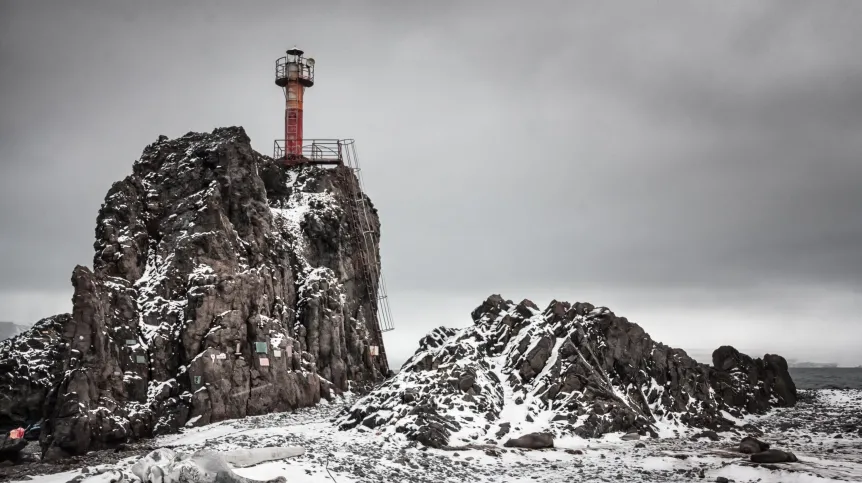
Polish scientists working at the Henryk Arctowski Polish Antarctic Station have discovered the remains of British meteorologist Dennis “Tink” Bell, who disappeared during an expedition to Antarctica in 1959.
The BBC reported that Bell’s remains were found on January 29 this year at the foot of the Ecological Glacier on King George Island.
The discovery was made by a team from the University of Lodz — Professor Piotr Kittel, Paulina Borówka, PhD, and Artur Ginter, PhD — along with Dariusz Puczko, PhD, from the Polish Academy of Sciences, and technician Artur Adamek. Bones were recovered from ice, rocks, and the glacier surface.
“We marked the discovery site with a handheld GPS device. We immediately decided to have specialists inspect the area before it became covered in snow and subjected to further erosion,” Puczko told the Polish Press Agency (PAP). “After the discovery, we conducted rescue archaeological and anthropological research using standard surface and laboratory archaeological methods.”
Puczko added that the site is considered high-risk due to minor landslides and rockfalls but stressed that the team explored safely along marked paths. The remains were recovered during four expeditions. Personal belongings, including a wristwatch, radio, pipe, bamboo ski pole fragments, a kerosene lamp, glass containers, and parts of a military tent, were also found.
“Some items are in good condition, including rolled-up textiles, indicating limited movement and minimal abrasion within the glacier,” Puczko said. He added that Bell’s body had shifted from the original accident site: “Glaciers, under the influence of gravity, move their mass of ice, and with it, Dennis made his journey.”
Bell, born in 1934, worked for the Royal Air Force and joined the Falkland Islands Dependencies Survey in 1958. Stationed at Admiralty Bay on King George Island, his duties included launching weather balloons, sending reports every three hours, and mapping the area. Colleagues described him as the best cook at the base and noted his attachment to the sled dogs.
On July 26, 1959, Bell fell into a crevasse while checking on the dogs during a glacier survey. His teammate Jeff Stokes attempted a rescue, but the rope broke, and Bell was never seen again.
Bell’s brother, David, 86, told the BBC: “I had long given up on finding my brother. It is just remarkable, astonishing. I can’t get over it. I lost hope of finding my brother a long time ago. It’s wonderful; I’m going to meet my brother. (…) He’s been found — he’s come home now.”
“This story is, in a sense, unprecedented, and to fully present it, our goal is to raise funds and conduct further research on this issue and in this region. Melting glaciers reveal many traces of the past,” Puczko said.
From London, Marta Zabłocka (PAP)
mzb/ akp/ agt/













